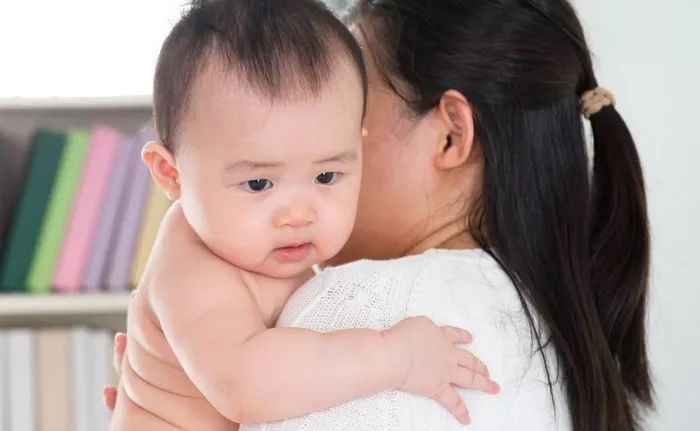Hiccups are a common and often harmless condition that can affect children and infants. Though usually temporary, they can be unsettling and uncomfortable for both the child and the parents. In this article, we will explore the best remedies for hiccups in children, providing practical advice and simple solutions to help alleviate this condition.
What Causes Hiccups in Children?
Hiccups occur when the diaphragm—a muscle located beneath the lungs—contracts involuntarily. This contraction causes a sudden closure of the vocal cords, which produces the characteristic “hic” sound. In children, hiccups can be triggered by a variety of factors, including:
Eating Too Quickly: Rapid consumption of food can cause the stomach to expand quickly, which can irritate the diaphragm.
Overeating: Eating large quantities of food may put pressure on the diaphragm, leading to hiccups.
Temperature Changes: Consuming very hot or very cold foods and beverages can trigger hiccups.
Excitement or Stress: Emotional factors can sometimes lead to hiccups in children.
While hiccups are usually benign and resolve on their own, knowing how to manage them effectively can help ease discomfort and prevent further stress for both the child and the parents.
Practical Remedies for Hiccups
There are several remedies that parents can try to help alleviate hiccups in their children. These remedies are simple and can be applied at home with minimal effort.
1. Drinking Water
One of the most straightforward remedies for hiccups is drinking a glass of water. This can help stimulate the vagus nerve, which may help stop the hiccup reflex. Encourage the child to drink the water slowly and steadily. For infants, offering a small amount of water can also be beneficial.
2. Holding the Breath
Another common remedy is to hold the breath for a few seconds. This can help reset the diaphragm and stop the hiccup reflex. Ask the child to take a deep breath and hold it for as long as they can. This method is generally effective and easy to implement.
3. Sipping on a Cold Drink
Sipping on a cold drink, such as water or juice, can help soothe the diaphragm and stop hiccups. The sudden change in temperature may help calm the diaphragm’s contractions. Encourage the child to take small sips rather than gulping the drink.
4. Eating a Teaspoon of Sugar
Swallowing a teaspoon of granulated sugar can be a simple remedy for hiccups. The graininess of the sugar may help stimulate the vagus nerve and disrupt the hiccup reflex. This method is safe for older children but should be avoided for infants under one year due to choking hazards.
5. Gentle Massage
A gentle massage of the child’s back or neck can help relax the diaphragm and ease hiccups. Use a gentle, soothing touch and massage in circular motions. This method is particularly helpful for younger children who may not be able to follow other remedies.
6. Using the “Paper Towel” Method
Place a paper towel over a glass of water and have the child drink through the towel. The added resistance can help engage the diaphragm more effectively, which may help stop the hiccups. This method is a bit unconventional but can be surprisingly effective.
When to Seek Medical Advice
In most cases, hiccups are temporary and do not require medical attention. However, if your child experiences persistent or severe hiccups that last for more than 48 hours, it is important to consult a healthcare professional. Persistent hiccups could be a sign of an underlying health issue that needs to be addressed.
Additionally, if the hiccups are accompanied by other symptoms such as difficulty breathing, vomiting, or significant discomfort, seek medical advice promptly.
See also: How To Relieve Cough And Congestion In Infants
Preventing Hiccups in Children
While it is not always possible to prevent hiccups entirely, there are some strategies that can help minimize their occurrence:
Encourage Slow Eating: Teach your child to eat slowly and chew their food thoroughly to reduce the risk of hiccups.
Avoid Overeating: Serve smaller, more frequent meals to prevent overeating, which can trigger hiccups.
Monitor Temperature Changes: Be mindful of extreme temperatures in foods and drinks, and try to provide foods that are comfortably warm or cool.
Manage Stress: Help your child manage stress and excitement through relaxation techniques or calming activities.
Conclusion
Hiccups are a common and generally harmless condition in children, but they can be bothersome. By understanding the causes and effective remedies for hiccups, parents can help alleviate their child’s discomfort and provide relief. Simple remedies such as drinking water, holding the breath, or sipping on a cold drink can be effective in stopping hiccups. If hiccups persist or are accompanied by other concerning symptoms, seeking medical advice is important. By applying these remedies and preventive measures, parents can better manage and reduce the occurrence of hiccups in their children.


